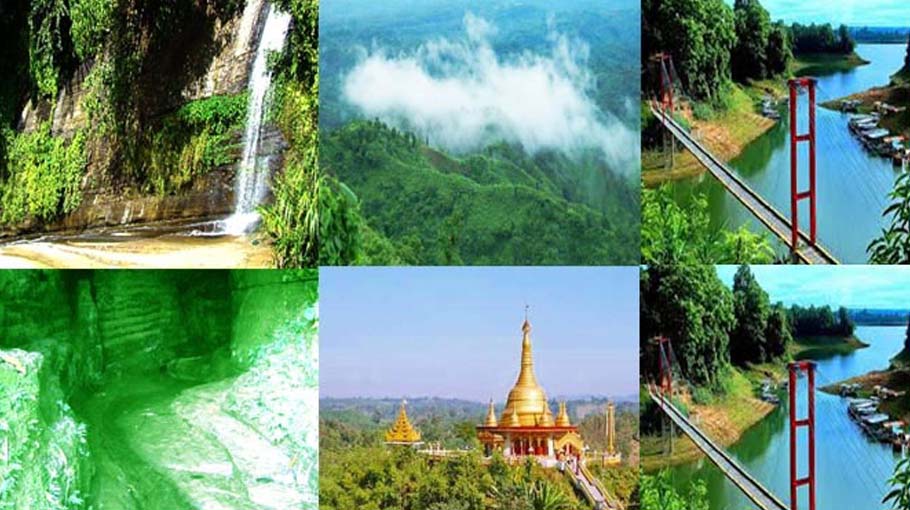Sustainable tourism policy required

Tourism in the hill areas of Bangladesh has developed rapidly, but there is no specific safety policy formulated for hill tourism.
Unplanned development is a risk for mountain ecology and cultural diversity.
It is important to develop mountain-friendly tourism by analyzing the existing state policy on mountain protection which requires a national hill protection policy.
Speakers in an online meeting made the comments on the occasion of International Mountain Day organized by Save the Environment Movement (POBA) titled 'Stop cutting down hills and trees’ to protect the ecosystem of the hills, on Saturday.
The United Nations has declared December 11 as International Mountain Day with a view to improving the living standards and sustainable future of the people in the hilly areas. The purpose of this day is to highlight the importance of eco-friendly and sustainable development of mountains, climate change, biodiversity etc. This year's theme is sustainable mountain tourism.
The speakers at the meeting said that due to the negative impact of change and unplanned human activities, unfavorable conditions are being created in the hilly regions of the world and disrupting the natural balance.
“Houses are being built by clearing forests in hilly areas and cutting down hills. Apart from this, deforestation is also going on in the name of unplanned construction of infrastructure, ecotourism, agricultural production, rubber cultivation etc,” he said.
They further said that the hill is not privately owned, but a national asset. If this continues, it is difficult to say whether there will be hills in the country in future.
The speakers further said that even though a law has been enacted banning the cutting of hills, it has not stopped. In most cases, the law is not enforced. When it rains, the hill sands fall into streams, disrupting normal flow. For almost four decades, isolated landslides in the highlands have killed people every year.
If deforestation continues like this, the forests will soon be lost from Teknaf and Cox's Bazar. Chattogram forests will also be destroyed in stages to meet the demand for fuel wood, they added.
“The environment of Cox's Bazar, the main tourist destination of Bangladesh, has already deteriorated due to the Rohingyas. It will suffer further losses in the future,” said the speakers.
Read more: Russia to send Japanese tycoon to ISS in return to space tourism
Recommendations made at the meeting include declaring the hills a national resource, formulating and implementing sustainable mountain tourism policy, classifying the hills as extreme risk based on mountain structure, nature, rainfall levels and quantity, and implementing long term plans in light of that.
Further demands were made to formulate policies to prevent deforestation, designate sites for government development projects in view of environmental threats and long-term effects, and manage ecotourism and agricultural activities, take effective measures for conservation of biodiversity rich mountain environment, etc.
Former Director General of Geological Survey of Bangladesh, Dr Mohammad Abdus Sobhan, General Secretary of POBA and Dr Ferdous Ahmed, Secretary of POBA spoke in the online discussion.
AKM Khorshed Alam, Professor, Department of Geography and Environment, Jahangirnagar University, Dr Mohammad Nurul Islam, General Secretary, Bangladesh National Geographic Association, and Dr Mohammad Jasim Uddin, Professor, Department of Botany, Dhaka University attended the meeting among others.




